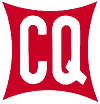Twas the night before World Wide, when all through the shack
Not a rotor was turning, not even the stack;
The finals were warmed in their chimneys so clear,
In hopes that DXpeditions soon would appear;
The guest ops were nestled all snug in their beds,
While visions of morning runs danced in their heads;
And mamma in her ‘headphones, and I in my cap,
Had just settled down for a last minute nap,
When out on the lawn there arose such a clatter,
I sprang from the bed to see what was the matter.
Away to the window I flew like a flash,
Tore open the shutters and threw up the sash.
The moon on the piles of unraked leaves below,
Gave rise to the guilt of yard tools still stowed.
When, what to my wondering eyes should appear,
But a full-on mobile, all bris’ling with gear.
With a little old guest op, so lively and free,
I knew in a moment it must be ‘DG.
A wink of his eye and a twist of his head,
Soon gave me to know I had nothing to dread;
He was chubby and plump, a right jolly old Op,
And I laughed when I saw him, I just couldn’t stop;
More rapid than eagles his QSOs they came,
And he whistled, and shouted, and called them by name;
“Now, G3! now, DL! go P4 and VE!
On, VK! next ZL! now, ZK and TT!
To the top of the Section! to the top of the Zone!
Now dash away, records, top them, alone!”
As QRM that before the high speed run splatter,
He lost not a moment to deal with the matter,
And using his mouse to zero beat the zoo,
‘Get off my freq AR, I know that it’s you’!
He spoke not a word, but went straight to his work,
And filled up the log; then moved for a jerk.
And laying his finger aside of his Bose, And giving a nod, up the standings he rose.
He copied the QSOs, some strong and some light,
And worked them all quickly, late into the night.
With uncanny speed the log he did fill,
I knew after checking his UBN would be nil!
He sprang to his mobile, to his mic gave a whistle,
And away QSY’d with the speed of a missile.
But I heard him exclaim, ‘ere he drove like a nut,
Happy WorldWide to all, and to all, a ‘KICK BUTT’ !!
by Tony Brock-Fisher K1KP (with apologies to Clement Clarke Moore)
